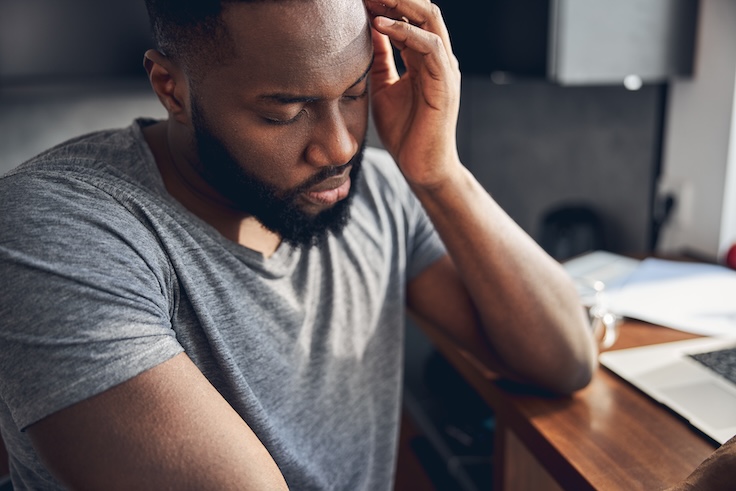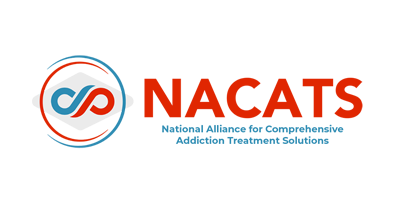
Have you tried to stop using heroin but nothing has seemed to work? Have you thought about Suboxone but fear how bad the withdrawal process will be?
You are not alone, and many have taken the path successfully to stop their heroin use. Just over 1 out of 10 people in Tennessee were prescribed Suboxone in 2022. At ReVIDA® Recovery, we have seen the benefits of Suboxone firsthand and have had the privilege of watching our patients reclaim their lives. Our dedicated team can help with securing a job, housing, and finding local support groups so you are never alone in your recovery. We understand the fear of withdrawal, which is why today we are answering the question, “How long after doing heroin can I take Suboxone?”
Table of Contents
Why You Have to Wait to Take Suboxone
Deciding to seek treatment for heroin use disorder can be freeing, like a weight lifting off of your shoulders. Suboxone is a safe and effective treatment method that is used widely throughout the United States. However, it can be risky to start Suboxone treatment too soon after taking a dose of heroin. Suboxone is a combination of buprenorphine and naloxone. These substances work to treat withdrawal from heroin, but they can cause severe effects if taken too early.
Risks of Starting Suboxone Treatment Too Early
Buprenorphine is a partial opioid agonist, meaning it still attaches to opioid receptors and triggers euphoria similar to heroin. However, because it is only a partial agonist, the effects are less intense than full agonists including heroin. This is how Suboxone works in treating withdrawal symptoms.
The risk of starting Suboxone too early is due to the naloxone. Naloxone is used to reverse opioid overdoses as it is an opioid antagonist. This means that it attaches to opioid receptors and blocks the effects of opioids like heroin. In Suboxone, naloxone creates a ceiling effect when paired with buprenorphine. Taking more Suboxone will not increase the effects, meaning the person cannot get “more high” from increasing the dose. When Suboxone is taken too early and heroin is still actively present within the body, the naloxone will cause precipitated withdrawal. Withdrawal from heroin will naturally occur when you stop taking it. But when Suboxone is taken too soon, precipitated withdrawal will cause severe and sudden withdrawal symptoms.

When Is It Safe to Take Suboxone After Stopping Heroin?
Heroin is a short-acting opioid, meaning it leaves the system quickly. Different factors such as overall health and length of time taking heroin may affect how long until it is safe to begin Suboxone. Not everyone will have the same timeframe to take Suboxone after stopping heroin use, but on average, it is safe to begin treatment around 6 to 24 hours after the last dose.
Influencing Factors
Suboxone is a medication prescribed by a licensed medical professional, and they will help determine when you are ready to begin treatment. You must begin experiencing withdrawal symptoms before Suboxone may be given. The doctor may ask questions about how often you were taking heroin and how much you consumed per sitting. They will need to know the last time you took heroin so they can plan accordingly for when withdrawal symptoms will start. On average, this time is 12-24 hours, and Suboxone will not be administered before symptoms begin.
What to Expect When Starting Suboxone Treatment
Suboxone is a very helpful treatment tool that has been proven to treat opioid use disorders successfully. Once withdrawal symptoms begin and Suboxone is given, you can expect to feel relief and more comfortable. However, it can take up to an hour for Suboxone to kick in, and you will want to plan for this. Avoid excess stressors like trying to work while just starting Suboxone. Plan a couple of days so you know how it affects you. This will help keep you safe physically and mentally as your body adjusts from heroin to Suboxone.
Always be honest with your doctor about your symptoms and how Suboxone is making you feel. There are different dosages of Suboxone, and the first one may not be right for you. Your doctor will work with you and come up with a treatment protocol that fits your needs and goals for recovery.
What Happens if You Use Heroin While on Suboxone Treatment?
Return to use does not mean you failed recovery, and many find it as a part of their journey. However, taking heroin while on a Suboxone regimen will not produce effects. As we discussed above, Suboxone contains naloxone. This blocks the opioid receptors from binding with heroin, and so forth blocks any effects it would release. It also will not allow for an overdose to occur. As long as you are taking Suboxone as prescribed, heroin will not have an effect. However, if you have stopped taking Suboxone and return to use, heroin could lead to a possible overdose and also possibly cause withdrawal symptoms to come back.
What if I Mix Other Drugs With Suboxone?
Suboxone can have interactions with other substances and cause unpleasant side effects. Drinking alcohol while taking Suboxone can cause severe drowsiness, fainting, and high blood pressure. Essentially, alcohol can amplify Suboxone side effects and create dangerous situations if the person tries to drive. Drinking alcohol while in treatment for a heroin use disorder may indicate a polysubstance use disorder and need addressing. Talk to your doctor about your alcohol use when discussing your Suboxone treatment.
Mixing Suboxone with cocaine or other stimulants can prove just as dangerous. A common drug combination is heroin and cocaine, known as speedballing. This is because both substances counteract each other, allowing the person to do more and keep feeling the same effects. However, by doing so, the risk of an overdose increases exponentially. Some have tried to mix cocaine with Suboxone to create the same effects of speedballing, but the outcome is similar. Suboxone prevents opioid overdoses, but not the effects of stimulants such as cocaine. The person could still experience an overdose from cocaine, which can be just as life-threatening as an opioid overdose.
Always inform your doctor of any prescription medications you take before starting Suboxone treatment. Benzodiazepines, muscle relaxers, and antipsychotics are known to have negative interactions with Suboxone. Antidepressants can also cause uncomfortable side effects. Your doctor will work with you to help manage side effects or change medications to provide symptom relief. Mental health often plays a role in substance use, and finding the right combination of medications that are safe with Suboxone will ensure both conditions are treated properly.

Suboxone Treatment in Appalachia Is Available Today!
Suboxone is a game changer for many living with a heroin use disorder or other opioid use disorders. Finding a suboxone treatment program can help you overcome heroin use and reclaim your life. Suboxone treatment is more than just taking medication, it will entail therapy and coping skill classes that will help you learn the root causes of your addiction. Your care team can help with housing, job assistance, and many more community resources so you always have support. If you have tried other methods in the past without success, it’s not too late to try Suboxone today.
If you or someone you love is managing a heroin use disorder and worried about withdrawal, help is available today. ReVIDA® Recovery has helped many find peace and success in recovery with the help of Suboxone. With locations throughout Tennessee and Virginia, we bring ease of access to care and even offer same-day appointments. Call us today at 423-631-0432 to learn more about our Suboxone program.
Reclaim your life.
Frequently Asked Questions About Heroin and Starting Suboxone
What drugs should not be taken with Suboxone?
Alcohol, stimulants, certain antidepressants, and opioids should not be taken with Suboxone. Your doctor will help you with your medications to make sure they won’t interact with Suboxone.









